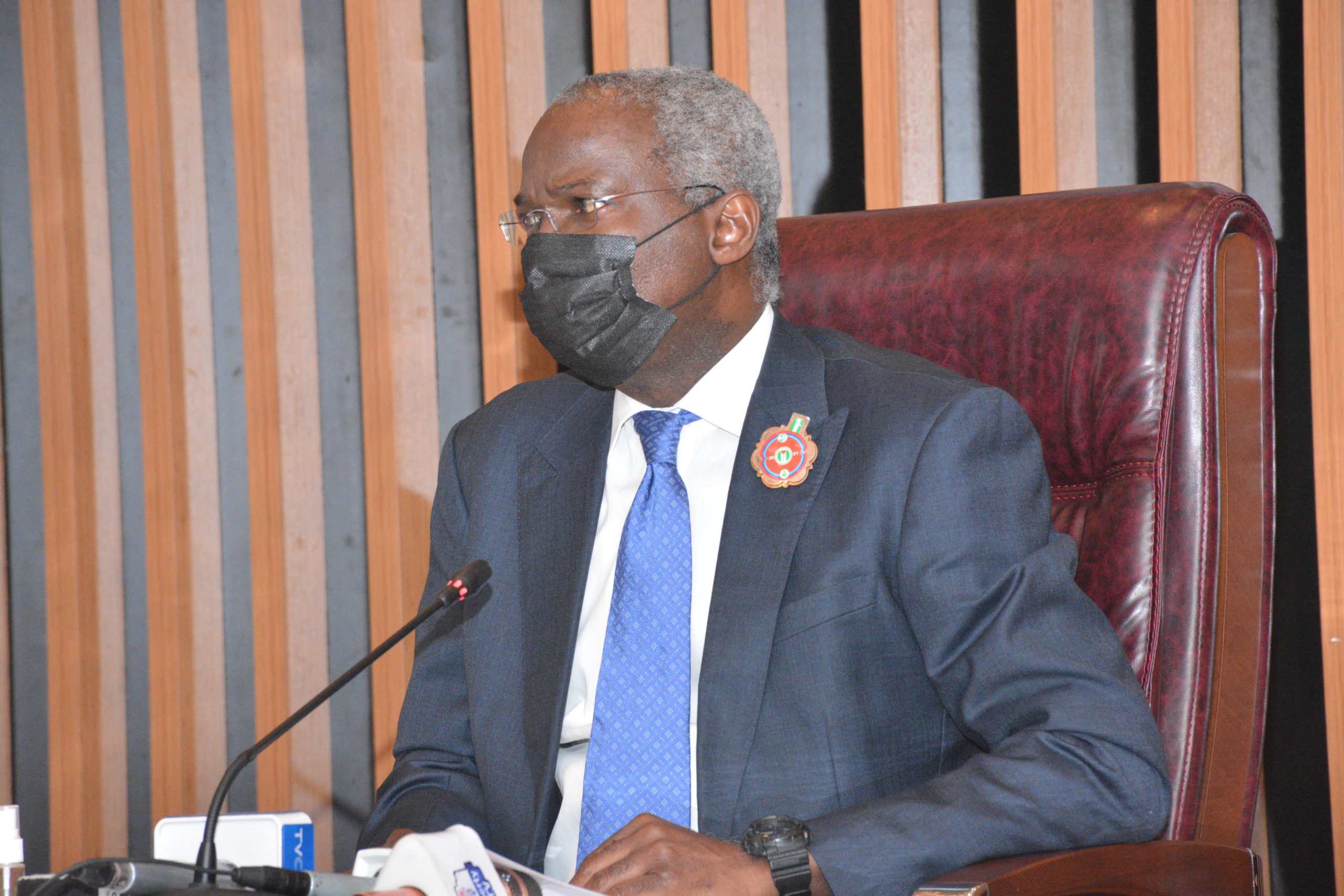The minister of Works and Housing, Babatunde Fashola, recently disclosed that in its effort to bridge housing deficit in the country, it has embarked on various construction of housing schemes.
Fashola said Federal Government’s intervention in the housing sector is challenged by access to lands.
Appraising the efforts of the federal government, he pointed out that lands are gotten from states before any project can commence.
“We have to bear it in mind that the federal government does not own land, it gets lands from states. In fact, just this morning I signed a letter to the governor of Edo State to give us more land to do another phase to complement the one he gave us before. We just got land from Ebonyi to expand another phase,” the minister said.
So, who exactly own the lands, water bodies and minerals buried underneath?
It is remarkable that despite the fact that the federal government, being at the top cadre of the organs of government and Nigeria practicing a quasi-unitary form of government, state governments have control over land allocation in their domain.
The 1978 Land Use Act bestowed such power to the states in a bid to standardize land ownership in the country as well as harmonize pre-existing laws on land ownership.
The Act stipulates that lands in urban centres are to be controlled by state governments while those in rural areas are vested in the local governments.
A study entitled, ‘Land Ownership in Nigeria: Historical Development, Current Issues and Future Expectations’, contended that erstwhile laws on land ownership, specifically during the colonial period, saw laws fashioned to suit colonial masters to achieve their political and economic aims thus jettisoning ownership through villages, towns, communities and families.
But after independence, “private ownership of land by individuals, families and communities were the predominant land tenure system in the Southern States of Nigeria and lands in the territory comprising the Northern States of Nigeria were regarded as owned by the state, based on the provisions of the Land Tenure Law of 1962.”
With the Act giving state governors the power to confer land to any individuals or hold it in trust for the common benefit of all Nigerians, ownership of land can be revoked with due compensation given and at the same time right of ownership under the Act allows for a maximum holding period of 99 years subject to payment of ground payment.
Section 1 of the Land Use Act, stated that all land located in the territory of each state in the Federation of Nigeria is with the governor of that state and such land shall be held in trust and administered for the use and common benefit of all Nigerians in accordance with the provisions of the Act.
On its part, Section 5(1) of the Act grants state governors the statutory right of occupancy to any person whether or not in an urban area and issue a certificate of occupancy as evidence of such right of occupancy in accordance with the provisions of Section 9(1) of the Act.
Also, Section 5(2) of the Act provides that “Upon the grant of a statutory right of occupancy under the provisions of sub – section (1) of this section, all existing rights to the use and occupation of the land which is the subject of the statutory right of occupancy shall be extinguished.”
This affirmed that the right of occupancy granted by a governor as the highest right to land in Nigeria.

Land holding mineral deposit belongs to federal government
However, the Nigerian Minerals and Mining Act (2007) allows the federal government to claim ownership of all land endowed with mineral resources wherever it is located in the country.
Section 1(1) of the Act provided that “The entire property in and control of all mineral resources in, under or upon any land in Nigeria, its contiguous continental shelf and all rivers, streams and water courses throughout Nigeria, any area covered by its territorial waters or constituency and the exclusive Economic Zone is and shall be vested in the government of the Federation for and on behalf of the people of Nigeria.”
Section 1 (2) reads: “All lands in which minerals have been found in commercial quantities shall, from the commencement of this Act be acquired by the government of the federation in accordance with the provisions of the Land Use Act.”
Section 1 (3) provides that the property in mineral resources shall pass from the government to the person by whom the mineral resources are lawfully won, upon their recovery in accordance with this Act 1.
With both legislations giving the two-tiers of government control over what happens to land in the country, the Land Use Act empowered state governments on who to occupy lands in their states; the Nigerian Minerals and Mining Act, 2007 gives the federal government control over mineral deposits found on land thereby concentrating mineral resources in the country in the hands of the federal government.
Source: Daily Trust




